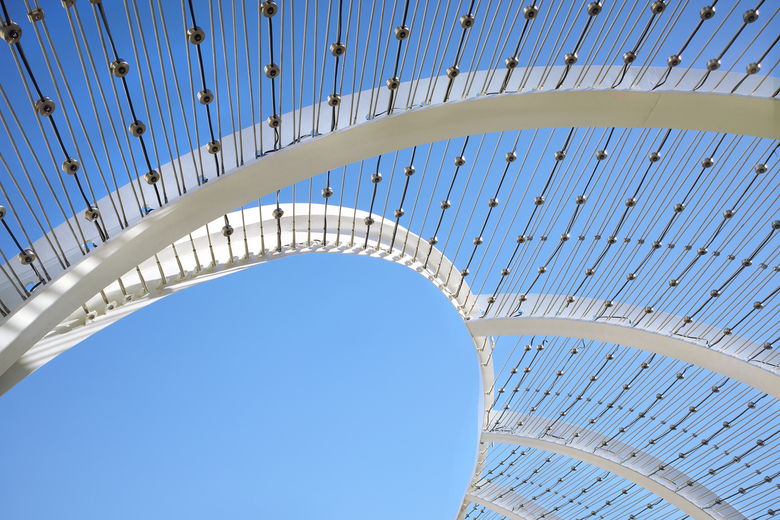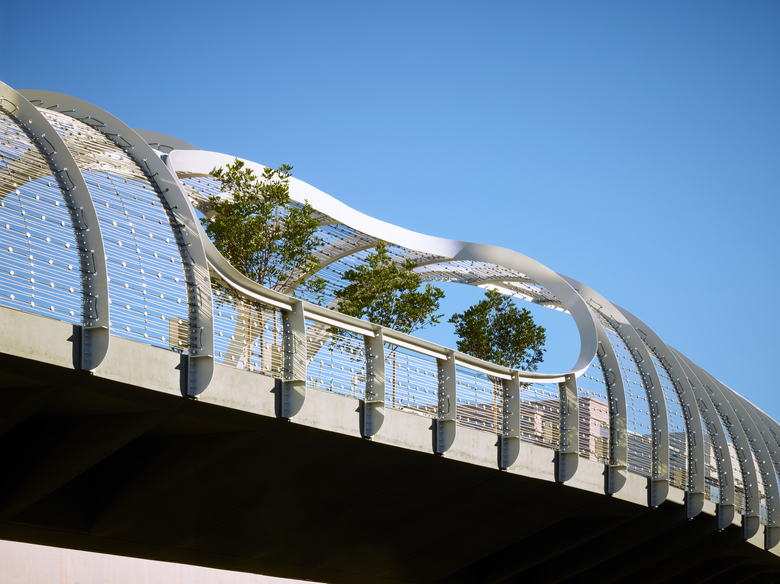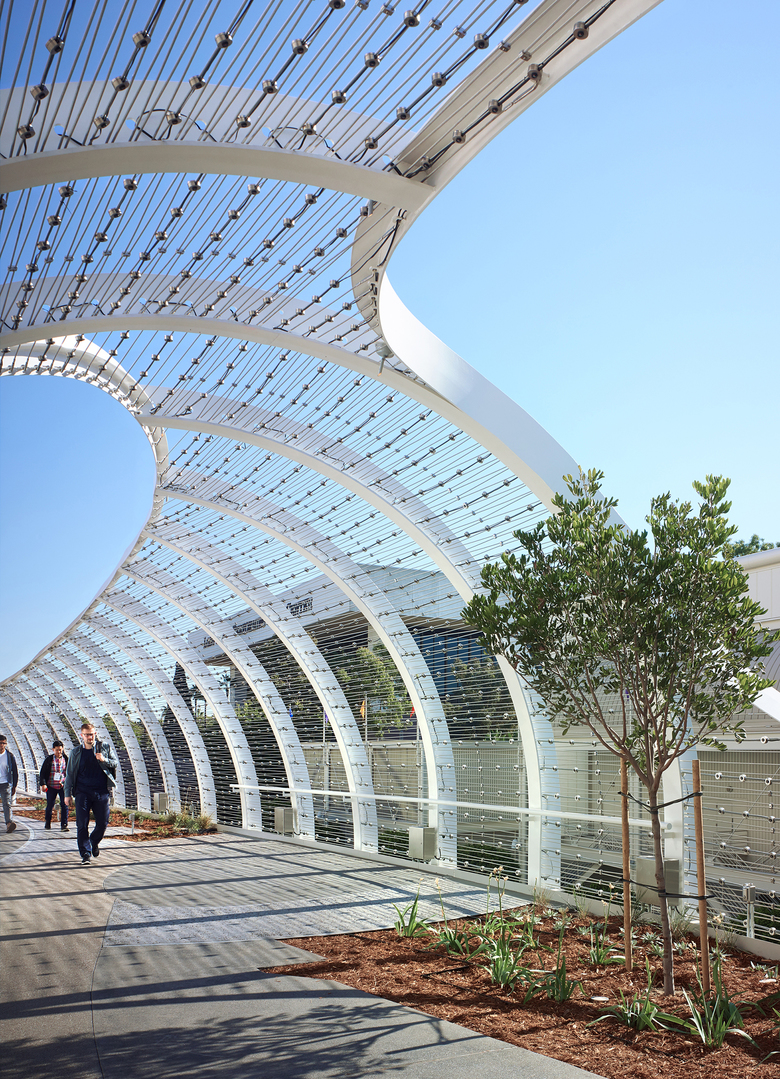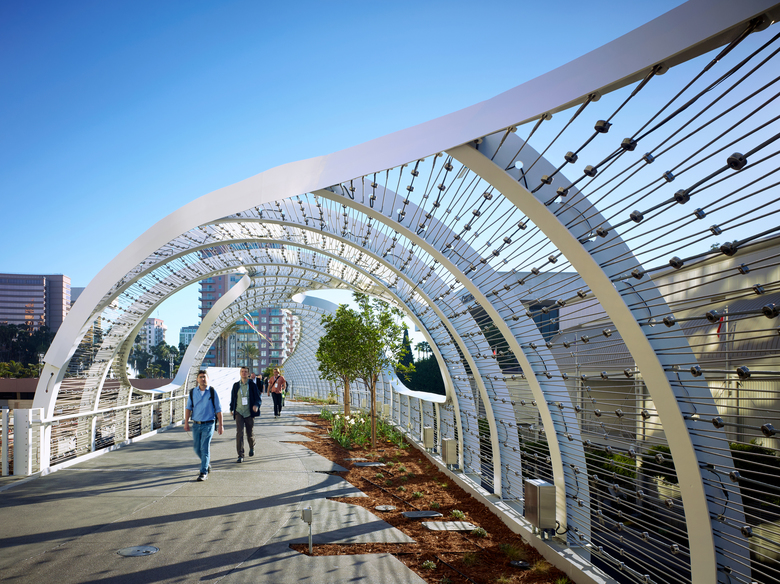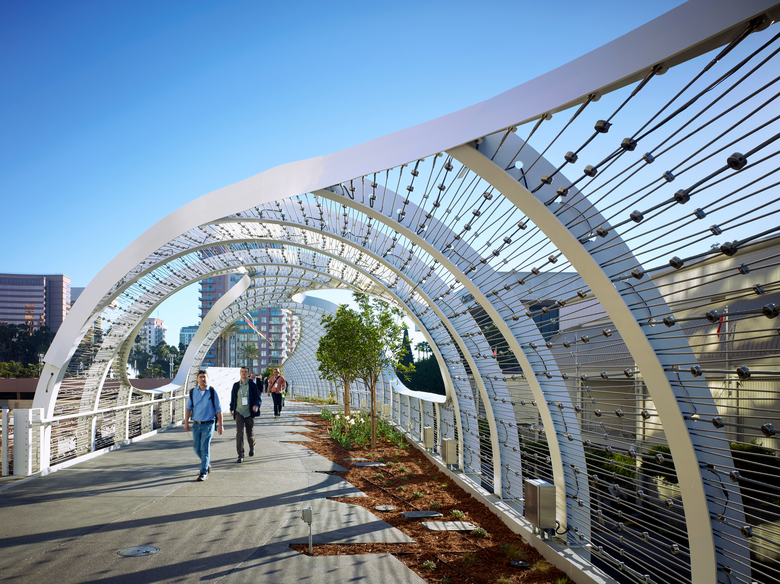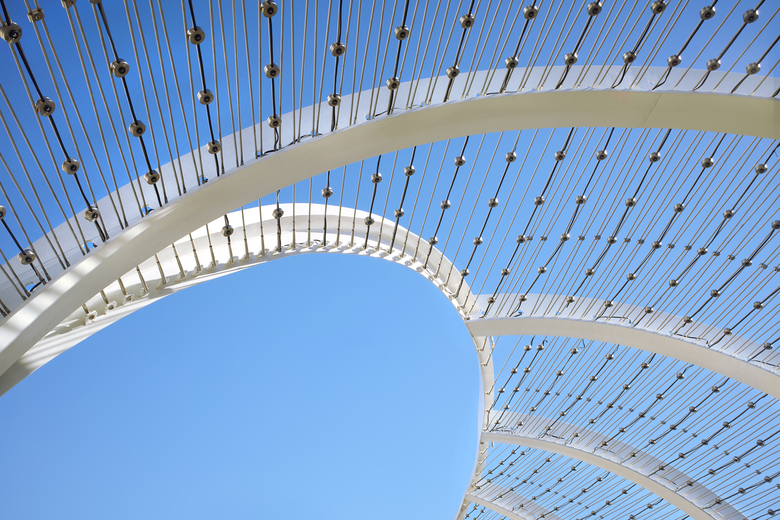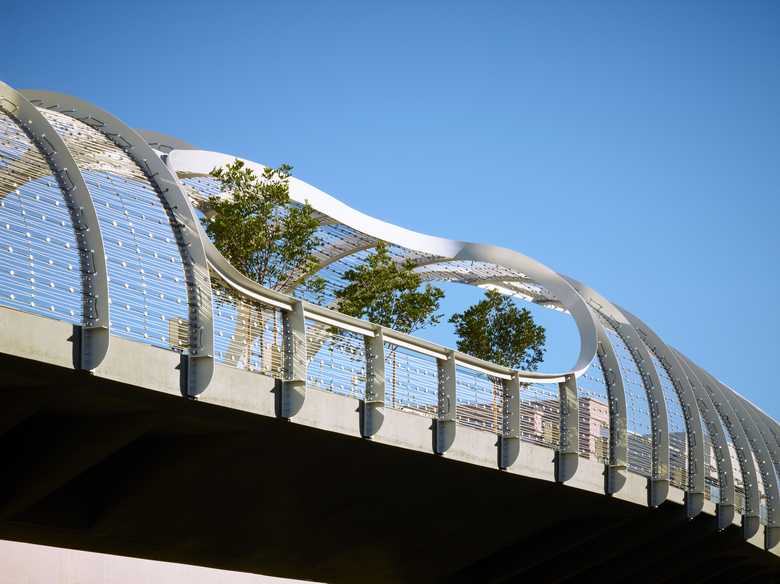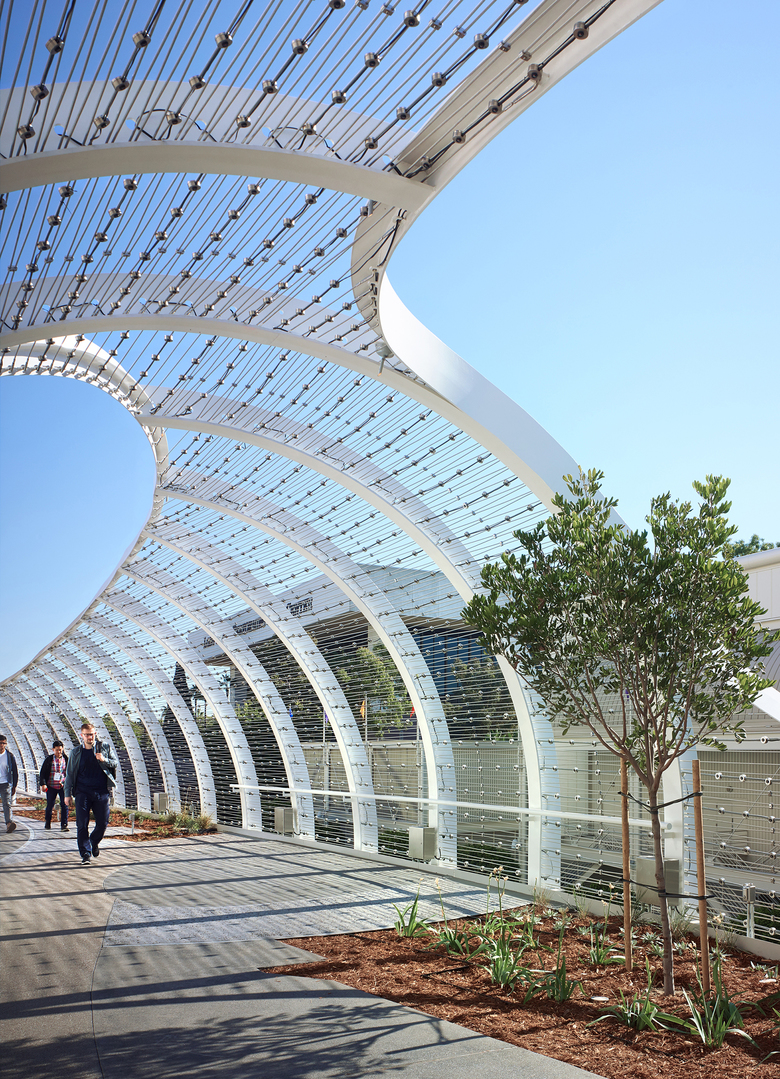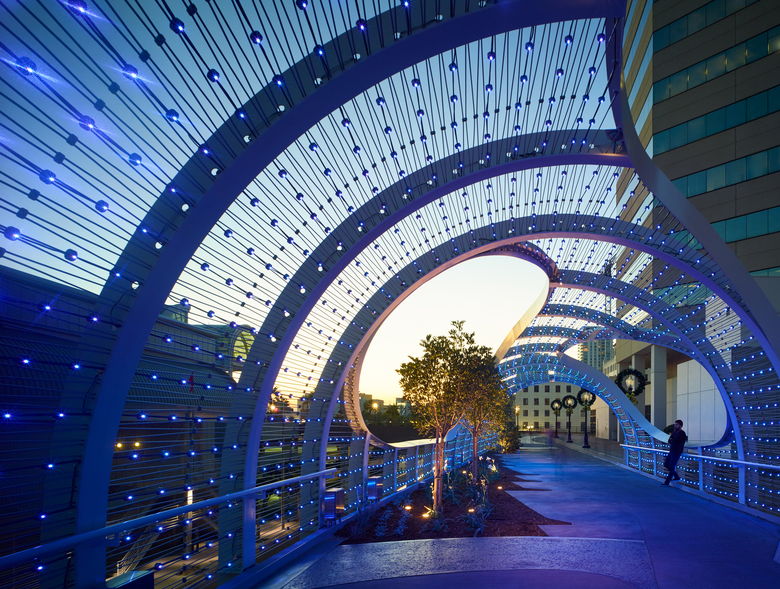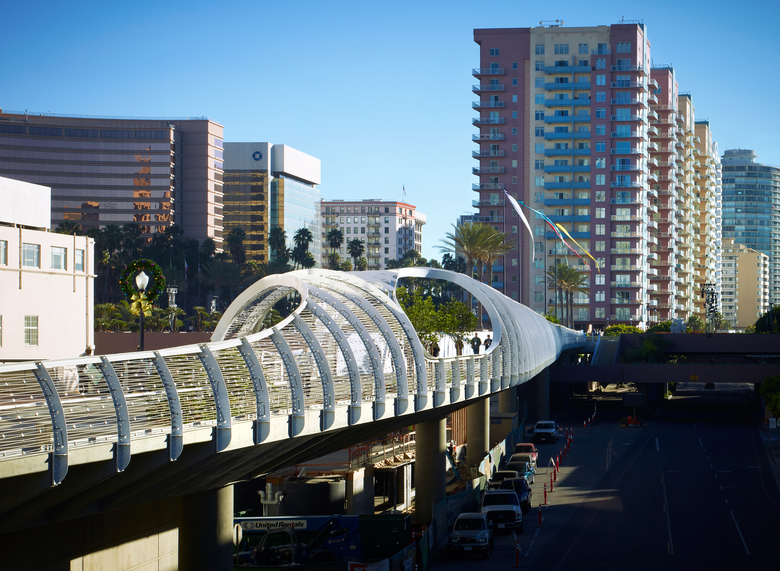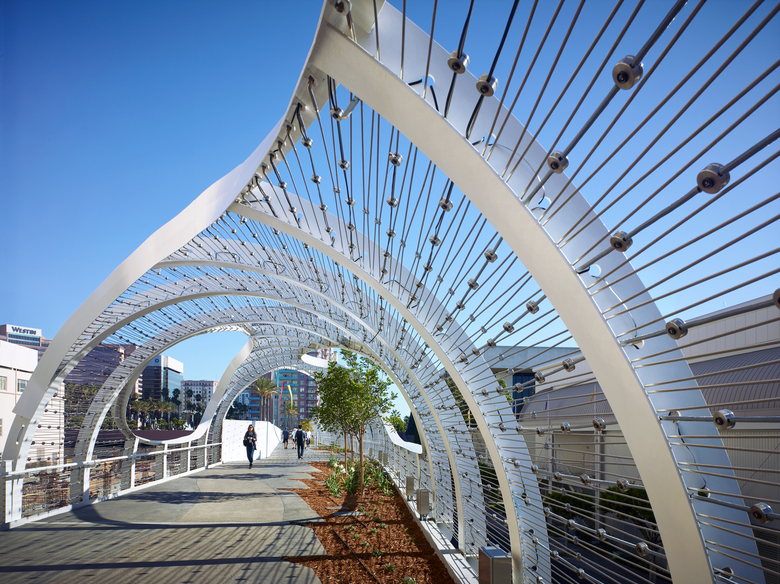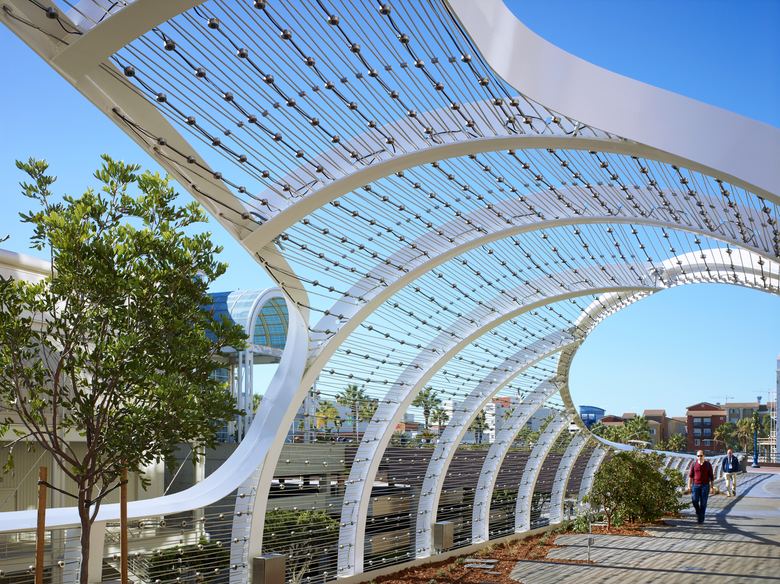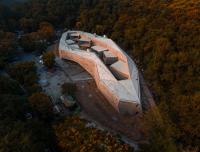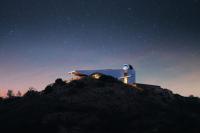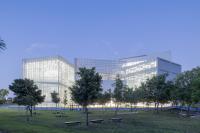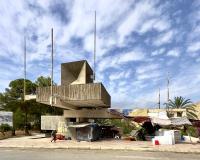Rainbow Bridge
Long Beach, États-Unis
SPF:a was chosen in 2014 for their proposal to create a direct, public connection between two major Long Beach venues: the Long Beach Convention Center and the Long Beach Performing Arts Center. Before the construction of the bridge, moving between the two destinations demanded climbing numerous flights of stairs and crossing a stretch of Seaside Way dominated by loading docks and HVAC equipment.
The initial solution proposed was to build an elevated sidewalk between the two centers, but following an overwhelming response to the RFQ issued by the city, a more complete public amenity was pursued.
The finished project is a spectacular 600-foot pedestrian bridge consisting of 76 custom-welded bent-steel ribs framing the top, and approximately 1,200 cubic yards of poured-in-place concrete shaping the base. The bridge canopy features 3,500 color-changing LED node lights, 100 downlights, and 70 floodlights, all of which can be programmed and synched to music to create different effects.
SPF:a worked closely with Carl Stahl Architektur to create the custom, three-piece, stainless steel node clip that allows for the bridge’s LED wiring to attach to the canopy. The unique design also allows for ease of installation and replacement flexibility. Power and drainage for the walkway plantings have been hidden within the concrete spine of the bridge.
The overall design is heavily influenced by its beach surroundings (the bridge was, in fact, first dubbed “Riptide”). Structural elements such as the hull-like formation have been married with the elegance and uniformity found in waves, while the LEDs were affixed to cables to convey a net-like feeling or the rigging of a ship.
The final form was influenced by budget constraints and the pending development of an adjacent lot. SPF:a brought the overall cost of the project down to $10 million by simplifying the steel geometry and modifying the concrete profile of the bridge. Prior to construction, the bridge called for 80 or more uniquely formed rib beams. The design team was able to optimize the geometry in such a way that just one shape could achieve a similar dynamic form when placed in repetition.
